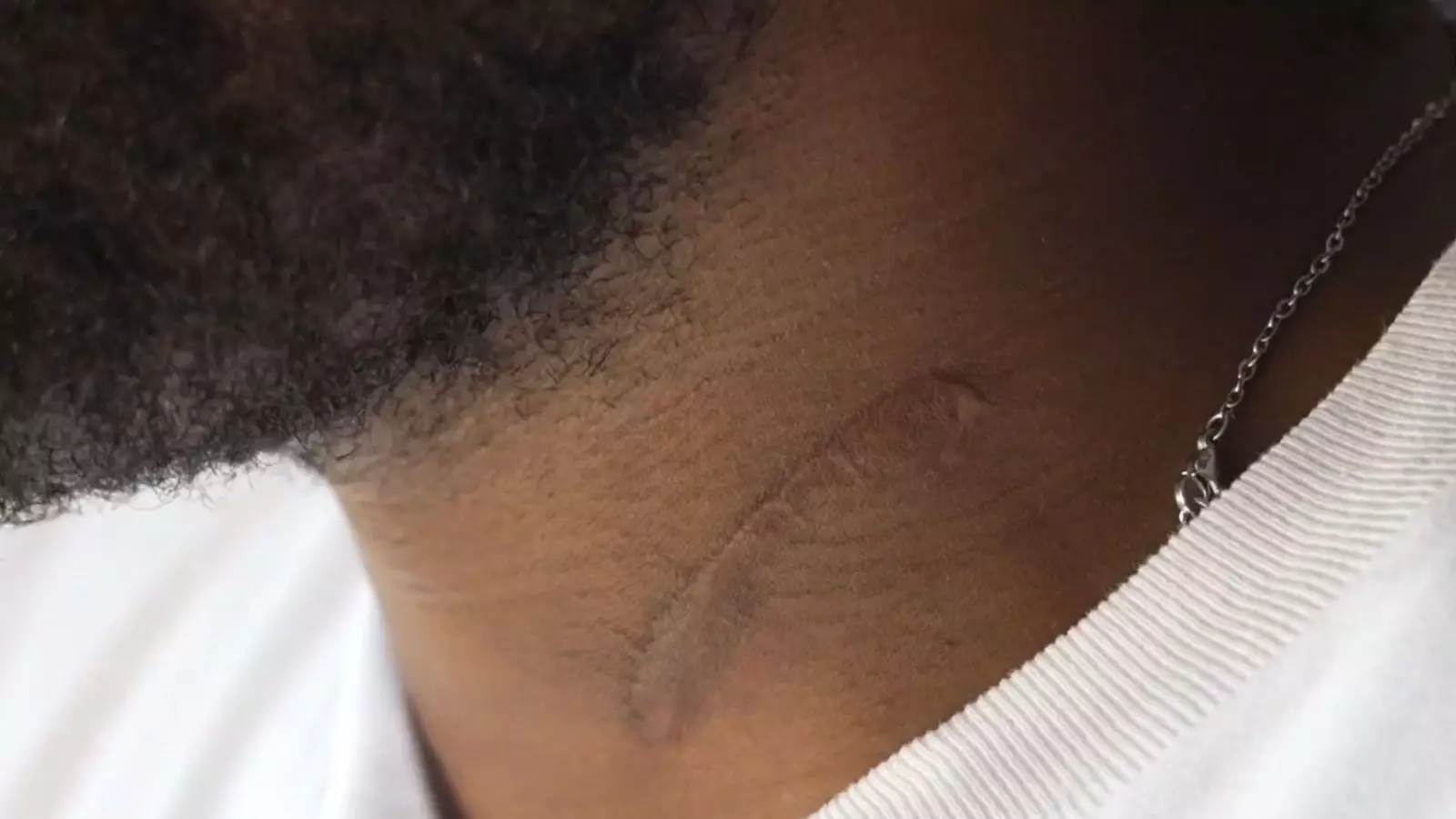In an era where the unexpected can shatter lives in mere moments, the chilling account of Donato Iwule brings a disturbing reality to the forefront. On a seemingly ordinary day, he found himself thrust into a nightmarish scenario that echoes the chaos of a horror film, yet it was all too real. A simple walk to work transformed into a life-or-death struggle against a man possessed by an inexplicable rage. Such incidents raise pressing questions: What pushes individuals to commit acts of such brutal violence? And how far is society prepared to go to prevent these horrors from becoming a common occurrence?
The perpetrator, Marcus Arduini Monzo, exhibited an alarming disconnect from reality, a stark reminder of the growing problem of unchecked aggression in our communities. Monzo’s actions were not merely reckless; they were premeditated, horrifyingly deliberate, as he stalked his victims with a samurai sword. Society must grapple with the uncomfortable truth that among us are individuals eager to inflict pain and suffering without provocation—a reflection of deeper, systemic failures that need urgent addressing.
Living Through the Trauma
Iwule’s harrowing narrative captures the raw emotions that come with being confronted by mortal danger. As he describes the moment Monzo delivered his chilling declaration, “I’m going to kill you,” one can almost feel the icy grip of fear enveloping him. The human instinct for survival punctuated the chaos, compelling him to recall the medical wisdom imparted by his cousin, epitomizing the resilience of the human spirit. His ability to apply pressure to his wound—a feat of quick thinking amid a hurricane of panic—underscores not only his survival instincts but also the psychological torment that continues to haunt him.
Months later, the psychological aftermath of such trauma leaves a formidable imprint. Iwule’s inability to feel safe even in his own home unveils the pernicious nature of fear. This is not just a physical injury; it is an enduring emotional scar that speaks to the long-term effects of violence. Exploring this aspect of the human experience reveals a glaring inadequacy in how we treat mental health in post-violent scenarios. Where is the support for those left to navigate the treacherous waters of their own psyche after surviving acts of extreme aggression? Society’s neglect in addressing the mental ramifications echoes a broader failure to implement comprehensive care for survivors.
The Implications of a Failed Justice System
The conviction of Monzo is a momentary relief for Iwule, but it also highlights another stark reality—the justice system’s sporadic effectiveness in curbing such heinous acts. The ease with which Monzo was able to carry out his rampage raises profound questions about public safety and the legal system’s role in preventing violence. How preventable are these tragedies? What mechanisms should be in place to identify potential threats before they escalate into catastrophic violence?
This incident serves as a sobering reminder that there exists a pressing need for a multi-faceted approach to violence prevention. Community awareness programs, better mental health support systems, and more accessible resources for conflict resolution could play vital roles in deterring individuals from descending into violence. The call for reform should not merely hinge on the aftermath but rather focus on prevention, ensuring that stories like Iwule’s don’t become an unfortunate norm.
Hope Amidst the Darkness
The narrative of Donato Iwule transcends a single traumatic event; it encapsulates resilience, community support, and the possibility of overcoming even the bleakest circumstances. His survival is not just a tale of escaping physical harm but also an emblem of the indomitable human spirit. Iwule’s journey—marked by moments of despair yet tempered with hope— insists upon the imminent necessity for a societal shift in how we view, discuss, and act against violence.
While the wounds from Monzo’s attack may never completely heal, the importance of amplifying stories like Iwule’s cannot be overstated. Each account offers insight into the personal toll of violence and emphasizes our collective duty to foster safer environments. As society seeks to confront the complexities of human behavior and its darker facets, perhaps we can find solace in the shared narratives of survivors determined to reclaim their lives against overwhelming odds.

Leave a Reply